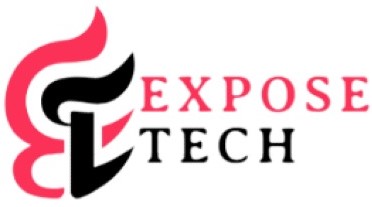The competitive nature of the business environment necessitates efficient systems to manage proposals effectively. Proposal management solutions are increasingly being recognized as critical tools to streamline operations and maximize success rates in securing new contracts and clients. With the aid of technology, these systems provide a structured approach to managing proposals from inception to submission. In this article, we discuss the multifaceted advantages of adopting these solutions, from enhancing collaboration to leveraging analytics for better proposal strategies.
Understanding Proposal Management Solutions and Their Relevance in Today’s Business Landscape
In today’s business climate, proposal management is more than just crafting documents; it’s about creating a persuasive narrative that stands out in a sea of competition. Proposal management solutions are designed to facilitate this process, ensuring proposals are well-organized, timely, and of the highest quality. By providing a framework for preparing and presenting proposals, these solutions help businesses align with client needs and expectations accurately.
Traditionally, proposal development has been a labor-intensive activity prone to inefficiencies. Lengthy approval cycles, inconsistent messaging, and the complexities of team coordination are common challenges that businesses face. The necessity for streamlined processes that can overcome these obstacles and maintain a competitive edge has seen the rise of proposal management solutions.
Streamlining the Proposal Creation Process with Automation
One of the key benefits of proposal management solutions is the automation of repetitive tasks. By automating certain elements of the proposal process, teams can devote more time to strategic aspects, such as tailoring the message to the prospective client’s needs and fine-tuning the value proposition. Automation also helps in setting and adhering to timelines by prompting users with reminders and deadlines.
Automated workflows can guide a proposal through its various stages, ensuring that nothing falls through the cracks. From the initial request for proposal (RFP) analysis to the final submission, automation keeps each step progressing smoothly. This level of organization can eliminate the redundancy and confusion often associated with manual methods of proposal development.
Enhancing Collaboration and Reducing Errors Through Proposal Management Tools

Teamwork is at the heart of any successful proposal development process. Proposal management tools are designed to enhance collaboration by providing a central platform for all proposal-related activities. They enable team members to contribute simultaneously, discuss revisions, and provide feedback in real time. This mitigates the risk of miscommunication and ensures that everyone involved is working towards the same goal.
Document version control is another critical feature of these tools. It prevents confusion over document versions and keeps everyone aligned on the latest updates. This not only reduces the chances of errors but also helps to preserve the integrity of the proposal content as alterations and suggestions are carefully tracked and recorded.
Leveraging Analytics for Improved Proposal Strategies and Higher Win Rates
Analytics is a powerful component of proposal management solutions, providing critical insights into proposal performance. Data-driven decision-making is essential to refine strategies and enhance win rates. By analyzing past proposals, businesses can identify what resonates with clients and where there’s room for improvement.
Metrics such as proposal acceptance rates, average time spent on each section, and feedback scores can help companies adjust their approach to meet market expectations better. This level of analysis allows for continuous improvement in proposal quality and the ability to pivot strategies as needed to match changing trends in client requirements.
Achieving Cost Efficiency and Faster Turnaround Times in Proposal Development
Cost efficiency is a major advantage of deploying proposal management solutions. By reducing the time and resources required to produce proposals, businesses can significantly cut down on operational costs. Automated templates, content libraries, and collaborative tools reduce the need for extensive labor and help avoid the expense of last-minute crises that stem from disorganized proposal processes.
Faster turnaround times are equally important in the fast-paced business world. The ability to quickly generate accurate and compelling proposals can be the difference between winning and losing business opportunities. Proposal management tools provide that speed without sacrificing the detail and quality that clients expect.

